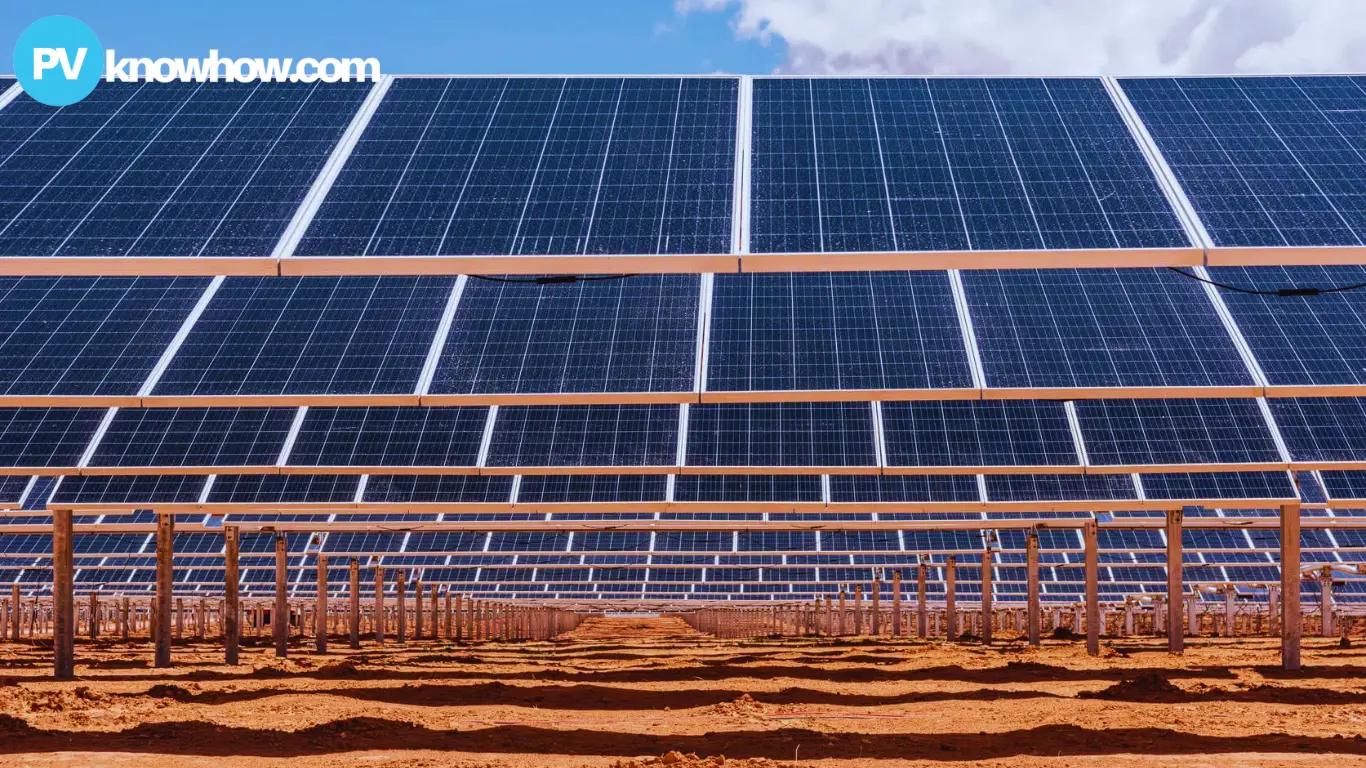Liberia has begun construction on its first-ever utility-scale solar plant, a 20 MW facility set to be completed by August 2025. This project is part of a broader effort to address energy shortages and expand renewable energy sources in the country.
First Utility-Scale Solar Plant
Liberia has made a historic move toward solving its energy challenges by breaking ground on its first-ever utility-scale solar plant. The new facility will have a capacity of 20 MW and is being built on the same site as the existing 88 MW Mount Coffee Hydropower Station in Harrisburg, Montserrado County.

Utility-Scale Solar Plant (Image collected)
The project is set to be completed by August 2025, according to reports from the local press. The Liberian government has hailed the project as the first of many planned solar and hydroelectric developments, which will be essential to tackling the nation’s persistent power shortages — particularly during the dry season.
During the dry months, water levels in Liberia’s rivers fall, thus leading to a drop in hydroelectric output. This puts strain on the country’s power supply, causing frequent energy shortages. The new utility-scale solar plant is expected to alleviate these issues, providing much-needed energy during this period when hydropower production is reduced.
Utility-Scale Solar Plant to Strengthen Energy Security
The solar facility in Harrisburg will be the first of several energy projects that the government is working on to diversify Liberia’s energy mix. This solar plant is expected to strengthen Liberia’s energy security by offering a reliable source of power, even when water levels are low.
President Joseph Nyuma Boakai Sr. attended the groundbreaking ceremony and highlighted the importance of the project for the nation’s future. He noted that this solar plant will be a game-changer, particularly for Liberia’s rural communities, where electricity is often scarce or unavailable.
“We cannot continue to rely solely on hydropower, especially with the challenges we face during the dry season,” President Boakai said. “This utility-scale solar plant is the first step toward a more diversified and stable energy system in Liberia.”
Collaboration With International Partners
The utility-scale solar plant is being funded through grants provided by the World Bank, as part of its Regional Emergency Solar Power Intervention Project. Other key partners involved include the African Development Bank, European Union, European Investment Bank, the US Government, the Japanese Government, and the German state-owned development bank KfW.
At the groundbreaking event, President Boakai expressed his gratitude for the support and collaboration of these international partners. “The government cannot do this alone,” he said. “We will need the collaboration of our development partners and the active involvement of the private sector, including Liberian businesses.”
The President emphasized that while the government plays a key role in spearheading energy projects, the participation of the private sector is crucial for ensuring long-term sustainability and success. This public-private partnership model will be vital in expanding Liberia’s energy infrastructure in the coming years.
Liberia’s Energy Ambitions
Liberia had only 3 MW of installed solar capacity by the end of 2023, according to the International Renewable Energy Agency (IRENA). The launch of the new utility-scale solar plant signals a significant shift toward increasing solar energy production in the country.
The government has also outlined plans to expand other energy sources, including hydropower. One of the most notable projects in the pipeline is the expansion of the Mount Coffee Hydropower Station, which currently has an 88 MW capacity. Additionally, there are plans to develop a second hydroelectric facility on the St. Paul River (SP2), which will further enhance Liberia’s energy production capabilities.
In his remarks, President Boakai stated that his administration is committed to achieving energy independence by utilizing a mix of renewable resources. Solar energy — with its lower costs and abundant availability in Liberia — is central to this strategy.
The launch of Liberia’s first utility-scale solar plant is a transformative step toward a sustainable energy future. With strong international support and private sector collaboration, Liberia is on a clear path to overcoming energy shortages and securing long-term economic growth through renewable energy investments.
